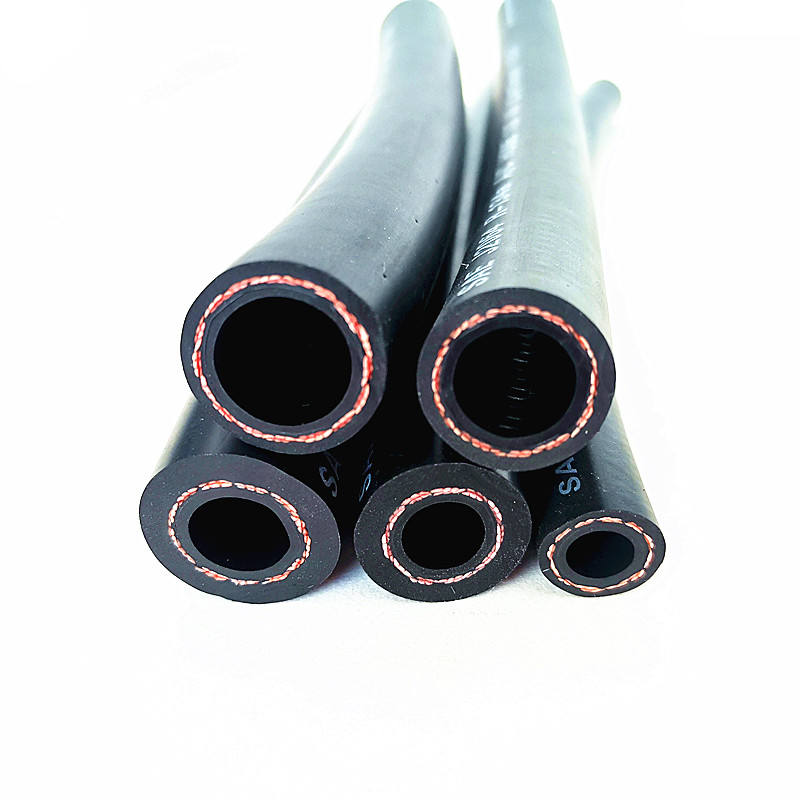Nov . 25, 2024 19:09 Back to list
Find Reliable Flexible Hydraulic Hose Suppliers for Your Needs Online
Buying Flexible Hydraulic Hose A Guide to Choosing the Right Manufacturer
When it comes to hydraulic systems, the efficiency and reliability of the components involved are crucial. One of the most important components in hydraulic systems is the flexible hydraulic hose. The performance of these hoses directly impacts the overall functionality of machinery and equipment. Therefore, selecting the right manufacturer for your flexible hydraulic hoses is essential. In this article, we will explore key considerations for buying flexible hydraulic hoses and tips for choosing the best manufacturer.
Understanding Flexible Hydraulic Hoses
Flexible hydraulic hoses are designed to convey hydraulic fluid under pressure while allowing for movement and flexibility. They are essential in various applications, including construction, agriculture, automotive, and manufacturing. These hoses are made from a combination of materials, including rubber, thermoplastics, and metal, designed to withstand high pressures and resist wear and tear.
Key Considerations When Buying Flexible Hydraulic Hoses
1. Pressure Ratings Before purchasing a hydraulic hose, it is critical to know the operating pressure requirements of your system. Each hose has a maximum working pressure, and exceeding this limit can lead to hose failure, which could have serious implications for safety and equipment reliability. Make sure to choose a hose that meets or exceeds your system’s pressure requirements.
2. Temperature Resistance Hydraulic systems often operate under high temperatures, which can affect the performance of hoses. Ensure that the manufacturer provides hoses that can withstand the temperature range of your application. Consider both the ambient and operating temperatures when making your selection.
3. Fluid Compatibility Hydraulic fluids can vary in composition, and it is essential to choose hoses that are compatible with the specific type of fluid being used in your system. Some materials can degrade or become compromised when exposed to certain fluids, leading to leaks or system failure. Always consult the manufacturer’s specifications for fluid compatibility before making a purchase.
4. Bend Radius The bend radius is critical when installing hydraulic hoses. A hose that is bent too sharply can kink or rupture, leading to failures. Check the manufacturer’s recommendations for the minimum bend radius required for the hose you plan to use and ensure it fits within your system’s layout.
buy flexible hydraulic hose manufacturer

5. Durability and Resistance Assess the environmental conditions in which the hoses will be used. Consider factors such as abrasion, ozone exposure, and exposure to chemicals. Hoses with reinforced layers or protective coverings offer increased durability and better resistance to external elements.
Tips for Choosing the Right Manufacturer
1. Reputation and Experience Research manufacturers that specialize in flexible hydraulic hoses. Look for companies with a solid reputation for quality and reliability. Check customer reviews and testimonials to gain insight into their experience and service.
2. Quality Standards Choose manufacturers that adhere to industry quality standards, such as ISO certifications. This ensures that their products meet specific reliability and safety benchmarks. High-quality materials and manufacturing processes lead to superior products.
3. Customization Options Every hydraulic system is unique, and you may require hoses that fit specific dimensions or configurations. Select a manufacturer that offers customization options to ensure you get the right product for your needs.
4. Technical Support and Service A good manufacturer will provide ongoing support, including technical assistance and guidance in selecting the right products. Ensure the manufacturer has knowledgeable representatives who can help you with your specific requirements.
5. Warranty and After-Sales Service Check the warranty provided on the hoses and inquire about the manufacturer’s after-sales service. A reputable manufacturer should stand behind their products, offering support and resolution in cases of defects or issues.
Conclusion
Choosing the right flexible hydraulic hose manufacturer is a vital step in ensuring the effectiveness and safety of your hydraulic systems. By considering factors such as pressure ratings, temperature resistance, fluid compatibility, and durability, you can make an informed decision. Additionally, selecting a manufacturer with a strong reputation, quality standards, and excellent customer support will further enhance the reliability of your hydraulic applications. Invest time in research, and you will find the perfect fit for your hydraulic hose needs.
-
Best Four Steel Wire Spiral Hose Hydraulic R12 – Durable High-Pressure Hose Manufacturer
NewsJul.08,2025
-
High-Quality 1/4 Hydraulic Hose – Soft, Flexible & Durable Rubber Hoses for Industrial Use
NewsJul.08,2025
-
1 1 2 Inch Hydraulic Flexible Hose - Durable, Reliable, High-Pressure Solutions
NewsJul.07,2025
-
High-Quality 1 2 Rubber Hose - Durable, Flexible Hydraulic Solutions
NewsJul.07,2025
-
Discover SAE Hydraulic Hose Types - High Quality & Durable Hoses from Leading Factory Supplier
NewsJul.06,2025
-
High Pressure Wire Hydraulic Rubber Hose Supplier Durable & Reliable 1SN Hose Solutions
NewsJul.06,2025
